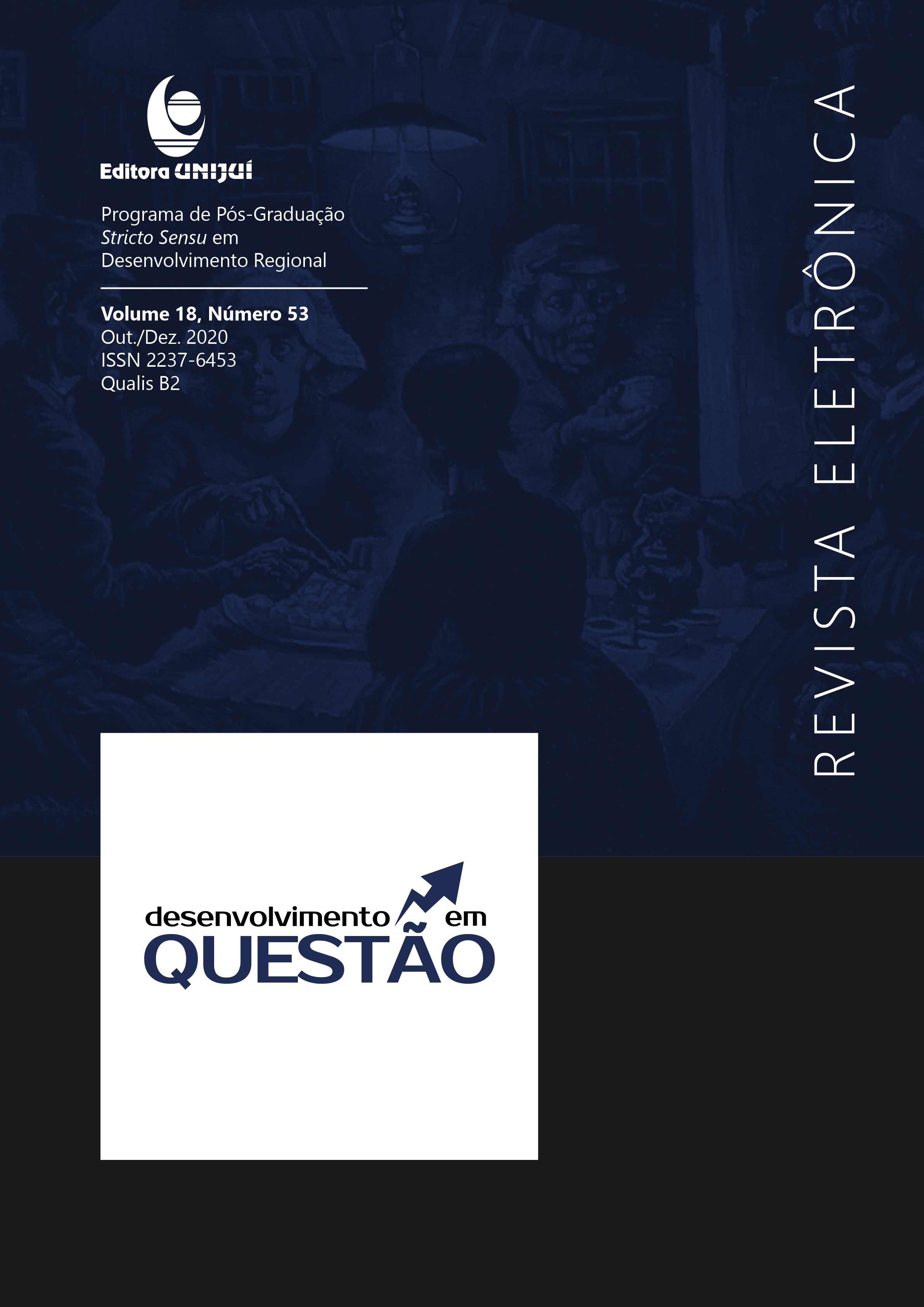LABOR, MATERIAL REPRODUCTION AND PRICE FORMATION IN CAPITALIST DEVELOPMENT
DOI:
https://doi.org/10.21527/2237-6453.2020.53.10-31Keywords:
Marx's theory of value. Social reproduction. Unequal development.Abstract
In this text is developed an approach of the relations between the price formation process and capitalist development whose starting point is the working process in its articulation with the material reproduction of society. Methodologically, this is expressed by considering the monetary aggregation of value based on working time as the basic process of price formation, according to Marx's theory of value. From the demonstration that the added value is the economic category that permits analyzing the articulation of the working process with the material reproduction of society, in this article it was also demonstrated that such reproduction can be characterized as a process in which wealth, values and prices, although subject to class struggle, they determine each other over time. In this process, it was evidenced that a stable equalization of profit rates can hardly occur. On the contrary, the adoption of the profit rate as a microeconomic criterion of decision on which its continuous equalization is based, as well as the differentiation of the aggregated value of the monetary equivalent of the working time caused by the global process of equalization of the profit rates, they result in an allocative inefficiency that is inherent to the capitalism. Thus, capitalist production, because it’s determined by the dynamics of capital accumulation itself, contradicts social needs. Due to its disturbing effects on the material reproduction of society, such a contradiction can be considered as one of the fundamental causes of the unequal character of capitalist development.
Downloads
Published
How to Cite
Issue
Section
License
By publishing in Revista Desenvolvimento em Questão, authors agree to the following terms:
All works are published under the Creative Commons Attribution 4.0 International License (CC BY 4.0), which allows:
Sharing — to copy and redistribute the material in any medium or format;
Adaptation — to remix, transform, and build upon the material for any purpose, even commercially.
These permissions are irrevocable, provided that the following terms are respected:
Attribution — authors must be properly credited, a link to the license must be provided, and any changes made must be indicated.
No additional restrictions — no legal or technological measures may be applied that legally restrict others from doing anything the license permits.
Notices:
The license does not apply to elements that are in the public domain or covered by legal exceptions.
The license does not grant all necessary rights for specific uses (e.g., image rights, privacy, or moral rights).
The journal is not responsible for the opinions expressed in the articles, which are the sole responsibility of the authors. The Editor, with the support of the Editorial Board, reserves the right to suggest or request modifications when necessary.
Only original scientific articles presenting research results of interest that have not been previously published or simultaneously submitted to another journal with the same purpose will be accepted.
Mentions of trademarks or specific products are intended solely for identification purposes and do not imply any promotional relationship by the authors or the journal.
License Agreement (for articles published from 2025 onward): Authors retain the copyright to their article and grant Revista Desenvolvimento em Questão the right of first publication.











